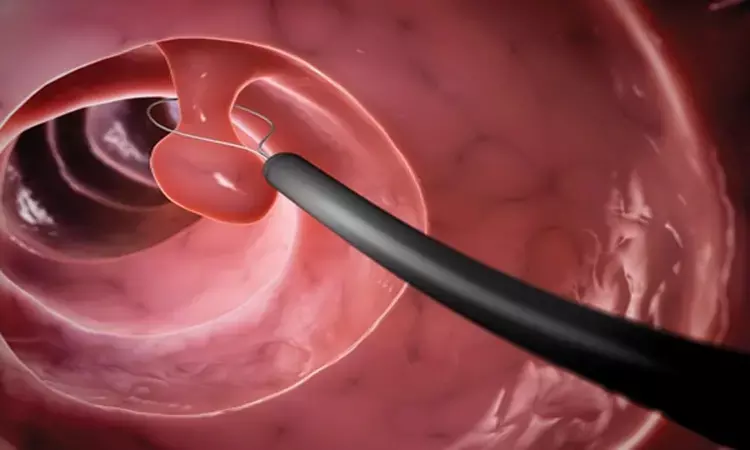- Home
- Medical news & Guidelines
- Anesthesiology
- Cardiology and CTVS
- Critical Care
- Dentistry
- Dermatology
- Diabetes and Endocrinology
- ENT
- Gastroenterology
- Medicine
- Nephrology
- Neurology
- Obstretics-Gynaecology
- Oncology
- Ophthalmology
- Orthopaedics
- Pediatrics-Neonatology
- Psychiatry
- Pulmonology
- Radiology
- Surgery
- Urology
- Laboratory Medicine
- Diet
- Nursing
- Paramedical
- Physiotherapy
- Health news
- Fact Check
- Bone Health Fact Check
- Brain Health Fact Check
- Cancer Related Fact Check
- Child Care Fact Check
- Dental and oral health fact check
- Diabetes and metabolic health fact check
- Diet and Nutrition Fact Check
- Eye and ENT Care Fact Check
- Fitness fact check
- Gut health fact check
- Heart health fact check
- Kidney health fact check
- Medical education fact check
- Men's health fact check
- Respiratory fact check
- Skin and hair care fact check
- Vaccine and Immunization fact check
- Women's health fact check
- AYUSH
- State News
- Andaman and Nicobar Islands
- Andhra Pradesh
- Arunachal Pradesh
- Assam
- Bihar
- Chandigarh
- Chattisgarh
- Dadra and Nagar Haveli
- Daman and Diu
- Delhi
- Goa
- Gujarat
- Haryana
- Himachal Pradesh
- Jammu & Kashmir
- Jharkhand
- Karnataka
- Kerala
- Ladakh
- Lakshadweep
- Madhya Pradesh
- Maharashtra
- Manipur
- Meghalaya
- Mizoram
- Nagaland
- Odisha
- Puducherry
- Punjab
- Rajasthan
- Sikkim
- Tamil Nadu
- Telangana
- Tripura
- Uttar Pradesh
- Uttrakhand
- West Bengal
- Medical Education
- Industry
USMSTF Guidelines for follow-Up after Colonoscopy and Polypectomy in colorectal cancer

U.S. Multi-Society Task Force on Colorectal Cancer (USMSTF) has released its updated guidelines for Polypectomy Surveillance. This is an update to a 2012 guideline. The objective is to update the 2012 recommendations for follow-up after colonoscopy with or without polypectomy in average-risk individuals. The guidelines have been published in the journal Gastroenterology.
Colonoscopy is performed routinely for colorectal cancer (CRC) screening, follow-up of other abnormal screening tests, workup of signs and symptoms of gastrointestinal disease, and surveillance after CRC and polyp removal
This document is based on recent evidence regarding the effect of screening and surveillance on incident colorectal cancer (CRC) and polyp risk, in the era of heightened focus on the importance of high-quality colonoscopy and broader use of technological advances.
Key Recommendations are
- The recommendations assume high-quality baseline colonoscopy, defined as complete examination to the cecum, adequate bowel preparation, a performance by a colonoscopist with adequate adenoma detection rate, and attention to complete polyp excision.
- The individuals with normal colonoscopy, or with <20 hyperplastic polyps <10 mm, should undergo surveillance in 10 years.Individuals with 1–2 adenomas <10 mm should undergo surveillance colonoscopy in 7–10 years. In those with 3–4 adenomas <10 mm, surveillance should occur in 3–5 years.
- Individuals with 5–10 adenomas, adenoma ≥10 mm, or adenoma with villous component or high-grade dysplasia should undergo surveillance in 3 years.
- Patients with >10 adenomas should return for surveillance in 1 year, with consideration for genetic testing based on adenoma burden, age, and family history.
- In the case of piecemeal resection of adenoma ≥20 mm, surveillance colonoscopy should occur in 6 months, then 1 year later, then 3 years after the second examination.
- Individuals with 1–2 sessile serrated polyps (SSPs) <10 mm should undergo surveillance colonoscopy in 5–10 years. In those with 3–4 SSPs <10 mm or hyperplastic polyp ≥10 mm, surveillance should occur in 3–5 years.
- Individuals with 5–10 SSPs, SSP ≥10 mm, SSP with dysplasia, or traditional serrated adenoma should undergo surveillance in 3 years.
This USMSTF 2020 guideline has added granularity that allows for more personalized recommendations, particularly for patients with small polyps.
For further reference log on to :
Gupta S et al. Recommendations for follow-up after colonoscopy and polypectomy: A consensus update by the US Multi-Society Task Force on Colorectal Cancer. Gastroenterology 2020 Feb 7; [e-pub]. (https://doi.org/10.1053/j.gastro.2019.10.026)
Dr Kamal Kant Kohli-MBBS, DTCD- a chest specialist with more than 30 years of practice and a flair for writing clinical articles, Dr Kamal Kant Kohli joined Medical Dialogues as a Chief Editor of Medical News. Besides writing articles, as an editor, he proofreads and verifies all the medical content published on Medical Dialogues including those coming from journals, studies,medical conferences,guidelines etc. Email: drkohli@medicaldialogues.in. Contact no. 011-43720751


